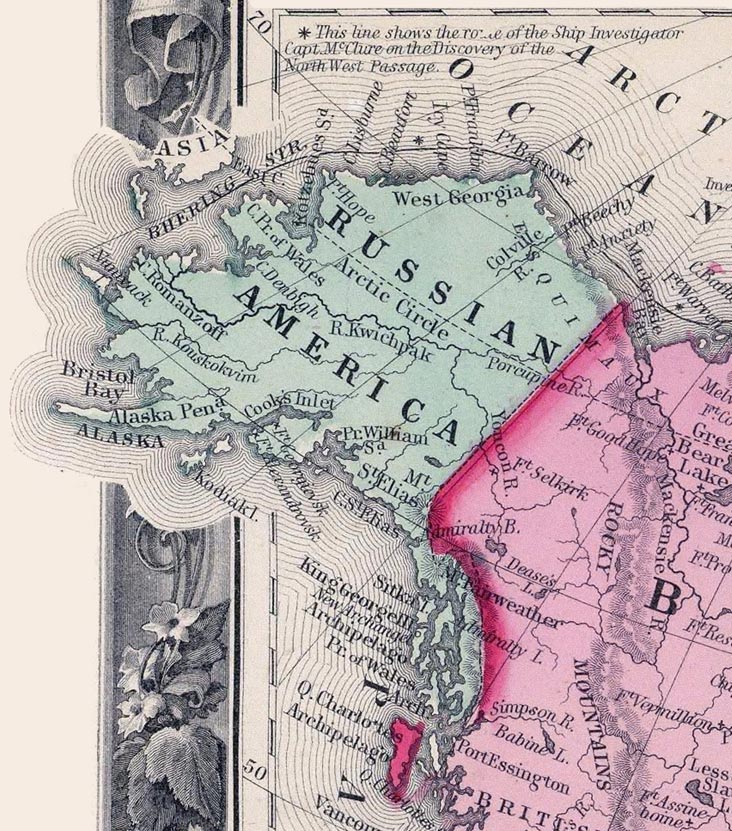Hey, there’s even talk about Alaska!

Is Vladimir Putin Coming for the North Pole Next?
While international cooperation is cooling down, the race for control over international waters may be heating up.

The beginning of the ice road that leads from Dettah to Yellowknife, in Canada’s Northwest Territories.(Arctic Council/Flickr)
Crimea wasn’t the only territory Russia claimed as its own this month.
Just three days before Russian President Vladimir Putin announced his plan to annex Ukraine’s peninsula, a U.N. commission gave him sovereignty over the Sea of Okhotsk, located off Russia’s southeastern coast near Japan. Those waters, it was decided, are part of Russia’s continental shelf.
Russia’s Environment Minister Sergey Donskoy called the 20,000 square miles of once-international waters a “real Ali Baba’s cave” because of its natural-resource reserves. “It took Russia many years to achieve this success,” he said, logic that rings true for the acquisition of Crimea.
But Russia’s appetite for territory does not end at its southern shores. The country is hungry for more control over the top of the globe, and has been for a long time.
Five countries stretch into the region called the Arctic: Russia, Canada, and the United States, by way of Alaska; and Norway and Denmark, through Greenland. No country has yet laid full claim to the entire region, which includes the North Pole and is home to 15 percent of the world’s oil, a third of its undiscovered natural gas, and, depending on your age, Santa Claus. But several nations have tried to extend their sovereignty there, which requires proving that their continental shelves extend more than 230 miles into the Arctic Ocean. (For a visual of who currently owns what, check out this map from The New York Times.)
The Arctic is not a lawless free-for-all, however. The five nations, along with Finland, Iceland, Norway, and Sweden, are members of the Arctic Council, an intergovernmental forum created in 1996 to facilitate cooperation among Arctic states, as well as communities indigenous to the area. The council is far from a military or economic alliance. Focused on subjects like environmental protection, pollution, trade routes, and fisheries, the group prides itself on keeping political and military issues out of the discussion.
